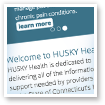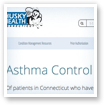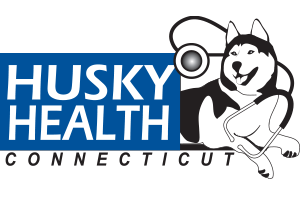
CMO Corner: Hepatitis C Screening Recommendations
Hepatitis C-related deaths have reached an all-time high in recent years, exceeding the combined total number of deaths from 60 other infectious diseases, including HIV and tuberculosis. Hepatitis C is often a hidden, asymptomatic infection. Performing routine testing for and subsequent treatment of Hepatitis C in high-risk populations is vital to reducing the rise in new infections and reversing high mortality trends. . . read more
Below is an overview of the Centers for Disease Control and Prevention screening recommendations for Hepatitis C:
- Adults born between 1945 and 1965 should be tested at least once for Hepatitis C, even in the absence of other Hepatitis C virus (HCV) risk factors. These individuals comprise a substantial portion of HCV-related deaths, as they are largely unaware that they may have been living with the infection for years.
- Ongoing/routine HCV testing is recommended for individuals using intravenous drugs. Individuals who have used intravenous drugs in the past, even just once, should be tested as well. Since 2010, acute cases of HCV have doubled and were predominantly associated with individuals with a history of intravenous drug use.
- HCV testing is recommended for persons with certain medical conditions, such as those who:
- received clotting factor concentrates produced before 1987 were ever on long-term hemodialysis
- have persistent abnormal alanine aminotransferase levels (ALT)
- have HIV infection
- received blood, blood components, or an organ transplant before July 1992, and were notified that they received blood from a donor who later tested positive for HCV infection
It is estimated that half of those currently living with HCV are unaware of their infection. With a collaborative and sustained effort of diagnosis and treatment in affected populations, the upward trend of new infections and HCV related deaths can be reversed.
For more information regarding HCV testing recommendations, please visit the websites listed below:
- http://www.uptodate.com/contents/screening-for-chronic-hepatitis-c-virus-infection?source=search_result_search=hepatitis+c+screening_selectedTitle=1%7E72
- http://hcvguidelines.org/full-report/hcv-testing-and-linkage-care
- http://www.cdc.gov/hepatitis/HCV/GuidelinesC.htm
- http://www.cdc.gov/nchhstp/newsroom/2016/hcv-press-release.html

The Provider Spotlight: HUSKY Health Provider Spotlight on Candlewood Valley Pediatrics
The Provider Spotlight is a new feature for the HUSKY Health Healthy Connections Provider Newsletter. Featuring practices which are successfully serving the HUSKY Health Community can help your practice learn about activities and initiatives you may not have considered before. . . read more
Candlewood Valley Pediatrics located in New Milford, Connecticut was started almost 30 years ago by Evan Hack, MD, and Diane D’Isidori, MD. Since then, the practice has grown to include six board-certified pediatricians with a total staff of 22. From its inception, Candlewood Valley Pediatrics was committed to providing medical care to the Medicaid population and currently serves approximately 1,500 HUSKY Health members. Candlewood Valley Pediatrics focuses on preventive care and provides diagnosis and treatment of the full spectrum of illnesses affecting infants, children, and adolescents.
The dedication of this practice to providing quality care by a staff which truly engages with its patients is illustrated by the way Candlewood Valley Pediatrics has chosen to organize its staff and its immediate participation in the Person-Centered Medical Home (PCMH) program. Candlewood Valley Pediatrics uses a pod system; each doctor works with a dedicated front-desk person and a nurse. Marilyn Decrescenzo, Practice Administrator, said that this organizational system helps each team to get to know its patients and their needs better.
When the State of Connecticut launched its PCMH program in 2012, Candlewood Valley Pediatrics applied to the Glide Path Program immediately; the Glide Path program is designed to provide technical support and guide practices through the PCMH recognition process at no cost. The practice successfully obtained its PCMH Level 3 recognition as a result of its enrollment in the Glide Path program. An integral part of the Glide Path program is the assignment of a dedicated Community Practice Transformation Specialist (CPTS) by Community Health Network of CT, Inc. (CHNCT) to facilitate the recognition process.
Ms. Decrescenzo said that CHNCT resources and the CPTS assigned to Candlewood Valley Pediatrics were crucial to helping the practice earn its PCMH recognition. Their dedicated CPTS continues to work with them on renewals as needed, and helped to support their subsequent Level 3 recognition. Even before Candlewood Valley Pediatrics became PCMH recognized, they were already highly focused on quality systems for healthcare. Dr. Hack said, “We were practicing pretty much as a PCMH, on the basic values and approach to care.” Through its PCMH recognition and participation in the Glide Path program, Candlewood Valley Pediatrics receives incentive payments for the HUSKY Health members they treat according to the PCMH codes for enhanced reimbursement.
While Candlewood Valley Pediatrics’ approach to member care before 2012 reflected PCMH concepts, the practice has transformed to become even more focused on such metrics as member satisfaction and tracking of referrals. In 2014, while going through the level 3 recognition process, it launched its first parent advisory group. The parents of Candlewood Valley Pediatrics’ members with special healthcare needs met to devise a “toolkit” to help support other parents with special needs children. The PCMH guidelines, Dr. Hack said, explained “how to navigate all their specialists and keep track [of everything] in one binder.” The practice is in the process of planning a new parent advisory group based on child age groups with the goal to improve member care.
Both Ms. Decrescenzo and Dr. Hack praised CHNCT for the ongoing support it provides to Candlewood Valley Pediatrics. Dr. Hack commented that the HUSKY Health program is the best when it comes to communicating about Candlewood Valley Pediatrics’ members, when compared to commercial health plans. He also values the Healthcare Effectiveness Data and Information Set (HEDIS®) data CHNCT provides. Candlewood Valley Pediatrics is committed to using its data to make further practice improvements which “translates into better member care,” Dr. Hack said.
While integrating physical and behavioral health care services has received more attention recently, Candlewood Valley Pediatrics has been coordinating these services for years. The practice works closely with Family and Children’s Aid, a HUSKY Health pediatric behavioral health provider, and the families Candlewood Valley Pediatrics serves in western Connecticut. A behavioral health provider from Family and Children’s Aid meets monthly with Candlewood Valley Pediatrics’ doctors to discuss mutual members and how to better coordinate care. Dr. Hack said, “They learn from us things medically and socially that the members didn’t tell them, and then we learn things the members didn’t tell us that they’re sharing with the therapists.” This approach to care coordination helps to reduce redundant provider services and activities; for example, necessary communication with a member’s school and/or daycare can be coordinated by a single provider instead of both.
With their focus on preventive care and their sensitivity to the needs of their patient population, Candlewood Valley Pediatrics ensured that all medical staff obtained certification to provide basic dental care to their members. Adding basic dental care, including exams and fluoride treatment during routine office visits, is especially important for their patients who have no dental insurance.
Candlewood Valley Pediatrics also seeks grants and received a grant to study obesity rates among its four-year-old patients. “It was an eye opener on how significant the obesity rate in that population was,” Dr. Hack said. He added that their study funded by the grant illustrated the barriers to treating the needs of those patients which are not always addressed during a standard office visit.
Summing up their experience working with the HUSKY Health program, CHNCT, and their HUSKY Health members, both Ms. Decrescenzo and Dr. Hack enthusiastically recommend that other providers and practices should accept HUSKY Health members. “There’s no reason not to,” Dr. Hack stated. “CHNCT is a wonderful partner in helping us care for our HUSKY population,” Ms. Decrescenzo said, “our patients are grateful and thankful for the care that they receive.”

Attention PCPs! HUSKY Portal Report Focus: ED Utilization Reports
As a PCP, you can directly access data on your HUSKY members. The HUSKY Health online secure provider portal makes a variety of reports readily available to you at your convenience. These reports provide you with valuable information on your attributed members, including gaps in care for well visits and cancer screenings, Emergency Department (ED) utilization, and much more. . . read more
The Emergency Department Utilization report details your attributed members who have had at least one trip to the ED for either emergent or non-emergent care which was paid in the prior month
The following information is also detailed for the members included in this report:
- Reason codes for ED admission and diagnosis
- Last preventive care visit
- Last office visit
- An indication of whether the member is currently or was enrolled in the Intensive Care Management (ICM) Program; a member may also be in a pending status for the program
This information in the report is intended to help providers engage with and educate members who have used the ED. Member education may include the importance of seeing a PCP after a visit to the ED, scheduling routine well-visits, and contacting a PCP for non-emergent care.
To access your Emergency Department Utilization Report, and other reports, access your account by going to portal.ct.gov/husky. Click “For Providers,” then “Provider Login” to sign into your account; if you are a new user, create a user name and password. Once you login to your account, you’ll be able to access your reports by clicking “Reports/Data;” if you have not yet requested report access, you’ll be prompted to complete the “Request for Report Access” form. New requests for report access take a few days to process. When a practice has report access, it will receive notification emails each time new reports are added to its account.
For more detailed instructions on creating your HUSKY Health account and obtaining access to the Provider Portal Reports, please click here or click on “Download the User Registration and Form Completion How To Guide” under “For Technical Support” on the login page.
HEDIS® is Here!
The annual Community Health Network of Connecticut, Inc. (CHNCT) HEDIS® season is here and we would like your help! HEDIS® stands for Healthcare Effectiveness Data and Information Set and is a tool that is used to measure provider performance on important dimensions of care. As the medical Administrative Services Organization (ASO) for the State of Connecticut’s Department of Social Services (DSS), CHNCT is collecting, processing, and reporting the data for this project. HEDIS® results are also used for continuous quality improvement efforts. . . read more
HEDIS® 2017 addresses services that were rendered in 2016 and in some instances 2015. Requests for clinical information may span multiple years depending on the HEDIS® measure, and a complete list of instructions will be provided with the request including the clinical information that needs to be returned to CHNCT.
In addition to the clinical information that is being requested for the HEDIS® measures, two new measures have been added to the annual chart request process for HEDIS® 2017. These measures include Developmental Screening in the First Three Years of Life and Behavioral Health Screening in the First 18 Years of Life. Providers that are billing the appropriate CPT codes and modifiers referenced in the DSS provider bulletin 2015-70 for Developmental and Behavioral Screens in Primary Care are less likely to receive requests for clinical information for these new measures.
In February of 2017, CHNCT began randomly selecting members who meet the criteria for certain measures. If your practice has one or more of these members, a request for clinical information will be sent to you. Requests for clinical information will end in early May 2017, but the sooner we receive the required clinical information, the better. Medical records may be submitted to CHNCT by fax, mail, email, Compact Disc (CD), flash drive, on-site pickup, or at an on-site review. CHNCT complies with applicable Health Insurance Portability and Accountability Act (HIPAA) regulations. The privacy and protection of your patients is extremely important to us.
CHNCT aims to reduce any administrative burden on our providers during the HEDIS® season; we will do what we can to make the process easier for you.
Please contact us to let us know:
- Who to contact at your office for all HEDIS® requests
- If you have a centralized location where you store all medical records and would like us to address all requests to that site
- If you are able to grant CHNCT access to your Electronic Health Record (EHR) system
- If you have any additional questions
You may contact us by email at quality@chnct.org or by phone at 1.866.317.3301 Monday – Friday from 8:00 a.m. to 5:00 p.m.; a voicemail is available after hours.
In addition, CHNCT has created two documents for your reference. The HEDIS® Overview & Introduction document outlines the HEDIS program and includes frequently asked questions. The HEDIS® Quick Reference Guide describes the scope of the data and coding guidelines for each HEDIS® measure. Click here to access these documents or visit portal.ct.gov/husky, click “For Providers,” then “Quality Health Outcome Measures,” under the “Reports & Resources” menu item.
Thank you for working with us to improve the health of the individuals, families, and communities we serve. We sincerely appreciate your cooperation and timeliness in submitting the requested clinical information in the coming months.

2015 Consumer Assessment of Healthcare Providers and System (CAHPS®) Survey Results
The CAHPS® survey measures health care consumer satisfaction with the quality of care and customer service provided by their health plan. Surveys were conducted for HUSKY A, B, C, and D adult and child members, including children with chronic care conditions (CCC). A mixed-mode methodology was used; mail was the primary mode by which surveys were administered and members who did not respond by mail were called to complete their surveys by telephone. . . read more
Sample sizes were based on the recommendations by the National Committee for Quality Assurance (NCQA):
- HUSKY A, C, and D adults had a survey sample size of 1,353 members, and 300 surveys (22%) were completed
- HUSKY A, C, and D children had a survey sample size of 3,526 members, and 729 surveys (21%) were completed
- HUSKY B had a survey sample size of 3,909, and 822 surveys (21%) were completed
What Were the Results?
The 2015 survey results indicated lower scores compared to the last survey year in the areas of Getting Care Quickly, Getting Needed Care, Access to Specialized Services (CCC only), Family Centered Care, Coordination of Care with CCC, and Shared Decision Making.
The survey questions associated with these areas are defined below:
| Getting Care Quickly |
|
| Getting Needed Care |
|
| Access to Specialized Services (CCC only) |
|
Family Centered Care: |
|---|---|
| Personal Doctor Who Knows Your Child |
|
| Getting Needed Information |
|
| Coordination of Care with CCC |
|
| Shared Decision Making |
|
Communication between doctors and patients is vital, not only as it relates to member satisfaction, but also as it relates to quality of care and member safety. The survey results indicate that members would like to actively participate in their own care and decision-making, as well as that of their child.
To help encourage member participation, please invite your HUSKY Health patients or parents of your patients, to ask questions regarding medications, visits to other providers, and the outcomes of any testing ordered, as well as any topic about which they may have concerns. Actively providing time for your patients to ask these questions will not only improve member satisfaction but also open the doors of communication between you and your patients.
With more effective communication, we can all help HUSKY Health members, and all patients, be more involved in and take ownership of their care. The simple act of offering a few minutes of your time to answer patient questions can empower patients to be more actively responsible for their care and well-being.

The HUSKY Health Website Has Gone Mobile!
The HUSKY Health website for providers and members has been redesigned to be completely mobile responsive, cleaner to read and navigate, and offers more content than ever before. . . read more
The Provider site is accessed in exactly the same way by going to portal.ct.gov/husky and clicking “For Providers.” You’ll notice a newly designed home page with an expandable main menu along with new content. Getting to the page and information you want has never been easier!
Here’s a listing of the content you’ll find on the new HUSKY Health Provider website:
Condition Management Resources - formation to help your HUSKY Health patients with chronic conditions achieve their treatment goals with evidence-based condition management services and resources.
Prior Authorization - access online portals for submitting online medical and radiology prior authorization requests and a variety of resources including forms and webinars.
Medical Management - find all policies, procedures, guidelines, forms, benefit grids and DSS bulletins.
Person-Centered Medical Home - learn about the comprehensive support program for practices pursuing and maintaining their Person-Centered Medical Home (PCMH) recognition status.
Reports & Resources - this comprehensive section gives providers ready access to all of the following:
- Reports and data you can obtain from HUSKY Health with information on how to access them
- Information about the Healthcare Effectiveness Data and Information Set (HEDIS®)
- Information about the Provider Collaborative
- Newsletters
- Webinars
- Forms
The HUSKY Health Member website is accessible from the site map at the bottom of the page and has a brand new Health & Wellness section as well as enhanced content about care coordination and expanded information for new members.
The new HUSKY Health website is designed to be easily browsable so make sure you take a look on your smartphone, tablet or personal computer to see what’s new!

Addressing the Needs of Homeless Members
According to the most recent data from the Connecticut Coalition to End Homelessness, the 2016 count of people experiencing homelessness in Connecticut has decreased by nearly 4% from 2015. While the rate of homelessness has declined, the number of homeless individuals is over 3,900 and the Intensive Care Management (ICM) team continues to conduct targeted outreach to members who may be homeless. To maintain their engagement, ICM team members attend community meetings to learn more about the homeless community and work with agencies that serve the homeless to connect members to medical care. . . read more
Our Intensive Care Managers and Community Health Workers (CHWs) take a comprehensive, person-centered approach to members referred to ICM in order to address their current medical and behavioral health issues and the social determinants of their health needs. Homelessness is one of the social determinants that can severely impact the health of a member.
CHW staff work with these members in a variety of settings to address social determinants of health. CHWs can meet members in shelters or soup kitchens to help them make phone calls to agencies or to complete online applications for programs that address housing insecurity. The CHW staff share their findings with ICM nurses to collaborate on care and ensure that medical needs are addressed.
Homelessness presents dynamic challenges related to delivering healthcare and addressing additional social determinants of health. To stay up to date with the latest information and resources available, Intensive Care Managers and CHWs participate in forums across the state that aim to address the special needs of our homeless population. At hospital-based community care and other community-based collaborative meetings, ICM nurses and CHW staff share pertinent clinical and psycho-social information for those HUSKY members who have signed a release authorizing their cases to be discussed in that forum.
CHWs use the information presented at these meetings, as well as information provided directly by members in face-to-face visits and phone call assessments, to help members access services that can prevent them from becoming homeless.
Homelessness prevention may include:
- Referring members to community action agencies that offer energy assistance programs to help pay utility bills and prevent loss of services
- Screening members to determine if they qualify for certain types of housing resources, such as elderly housing or Veteran housing assistance programs
- Advocating for members at Social Security disability appointments, which may help them more quickly obtain benefits that can help pay for housing
CHW staff participates in weekly and monthly meetings with the Coordinated Access Networks (CANs) across the state. Through the eight CANs, service providers work together to streamline and standardize the process for individuals and families to access housing assistance. Attending these meetings helps CHWs keep up to date on the ever-changing resources available, waitlist policies, and Connecticut severe cold weather shelter protocol. It also gives other agencies an opportunity to refer members back to ICM for assistance. The goal of these meetings is to connect HUSKY members to needed healthcare, shelter, and community resources.
CHWs provide the following services to assist members:
- Ensure members have a primary care provider
- Facilitate referrals to other providers and community resources
- Partner with the Connecticut Behavioral Health Partnership, the Connecticut Dental Health Partnership, the Department of Mental Health and Addiction Services, and the United Way 2-1-1 Info-line
- Maintain contacts with many home care agencies and area shelters for member referrals
Providers can refer members in need of community services to ICM by using one of the methods listed below.
- Fax a completed ICM Referral form to 866.361.7242. Click here to access the form or visit portal.ct.gov/husky, click For Providers,” then “Intensive Care Management,” under the “Condition Management Resources” menu item.
- Call 1.800.440.5071, extension 2024

Helping Members Control Asthma
Did you know that of the Connecticut residents diagnosed with asthma, almost half have uncontrolled asthma?1 To help improve asthma control, HUSKY Health has developed a web page with resources that help providers meet the guidelines of the National Asthma Education Prevention Program (NAEPP). The NAEPP has identified six clinical practice recommendations to assist providers with the implementation of the guidelines. . . read more
HUSKY Health’s Asthma Control web page provides you with easy access to asthma guidelines and the following resources designed to help you meet them:
- Asthma Care Quick Reference guide – a resource with guidelines and recommendations for patients with asthma
- Asthma Medication Ratio (AMR) calculator – a tool to help you assess if your patient is taking their asthma medications as prescribed
- Intensive Care Management (ICM) referral form – a referral form to provide your HUSKY Health patients with access to ICM services, including assistance with resolving barriers to managing their asthma
- Asthma Action Plans for both children and adults – tools you can use to create individualized asthma action plans to meet the unique needs of your patients
- The Asthma Control Test™ – a short assessment used to measure asthma control
- Emergency Department (ED) Utilization reports – listings of your HUSKY Health patients who have visited the ED and now require follow-up
1 Centers for Disease Control and Prevention. Uncontrolled asthma among persons with current asthma. 2014. http://www.cdc.gov/asthma/asthma_stats/uncontrolled_asthma.htm

Integrating Behavioral and Medical Care
The Intensive Care Management (ICM) program includes an integrated medical and behavioral health team to manage care and services for HUSKY Health members diagnosed with certain chronic medical conditions and Serious and Persistent Mental Illness (SPMI). The team consists of Registered Nurse Case Managers with behavioral and medical backgrounds, as well as a Behavioral Integrated Care Coordinator who is a licensed Behavioral Health Clinician. This team provides coaching, support, and resources to the other ICM teams to help address all of the physical and behavioral health conditions your patients may experience. . . read more
The behavioral health integrated team works with HUSKY Health members who have diabetes, asthma, congestive heart failure, or chronic obstructive pulmonary disease combined with any SPMI: schizophrenia, schizoaffective disorder, bipolar disorder, borderline personality disorder, and major depression. The team also works with members diagnosed with gender dysphoria and eating disorders. Using evidence-based coaching, the team works with members to develop person-centered, holistic care plans with a focus on stability. The team assists with coordinating care for members with both behavioral and medical needs, addressing gaps in care, and helping members overcome the barriers or social determinants that can keep them from reaching their healthcare goals.
The Case Managers assess a member’s needs using a thorough medical and psychosocial assessment. Once a member’s medical or behavioral health needs have been identified, the team works to ensure that those needs are met. The Case Managers also collaborate with other members of the ICM team, such as community health workers and dietitians. In addition, the behavioral health integrated team works with our inpatient care management teams to identify eligible members prior to their hospital discharge in an effort to decrease the number of future unnecessary ED visits and inpatient hospital stays.
To provide members with a holistic approach to their care, all ICM staff:
- Address basic needs including food, shelter, and heat must be met before addressing complex medical needs
- Work with community agencies to help eliminate the barriers that members face in the community
- Establish a relationship with your patients and respect their decisions and their readiness to change
- Are culturally aware of the needs of your patient
To make a referral to the behavioral health integrated team:
- Fax a completed ICM Referral form to 866.361.7242. Click here to access the form or visit portal.ct.gov/husky, click “For Providers,” then Intensive Care Management,” under the “Condition Management Resources” menu item.
- Call 1.800.440.5071, extension 2024

Important Changes to the Prior Authorization of Advanced Imaging Services
On January 1, 2017, the management of the existing HUSKY Health radiology benefit program transitioned from Care to Care to eviCore healthcare. Prior authorization continues to be required for non-emergent advanced imaging services for HUSKY A, B, C, D, and limited eligibility members who are 19 years of age and older at the time of service, and for dual eligible members (Medicare/Medicaid) without Medicare Part B coverage. Requests for advanced imaging services should be submitted using the applicable CPT code, except for certain MRA and MRI studies performed in an outpatient hospital setting. . . read more
Beginning January 1, 2017, providers are required to submit requests for certain MRA and MRI studies using the applicable HCPCS “C” code. Please see DSS Provider Bulletin 2016-70, “Important Changes to the Radiology Benefit Management Program,” for the list of codes impacted by this change.
Prior authorization for advanced imaging services may be obtained by:
- Submitting an online authorization request on the HUSKY Health website, by going to portal.ct.gov/husky, clicking “For Providers,” “Radiology Prior Authorizations” under the "Prior Authorization" menu item, then “Radiology Authorization Portal” or clicking here
- Calling the HUSKY Health Provider Line at 1.800.440.5071 and following the prompt for authorizations
- Faxing completed request forms to 1.888.693.3210
- Forms are specific to modality, body region, and/or medical condition; providers should select the appropriate form corresponding to the specific study being ordered
- Radiology forms for HUSKY Health can be accessed by visiting portal.ct.gov/husky; click “For Providers,” “Provider Forms” from under the “Reports & Resources” menu item, then “Advanced Imaging PA Request Forms,” select “Radiology” from the “Select Solution” drop-down menu, scroll to and click “View more for health plan specific radiology forms”
Please note all of the following updates to the radiology program itself:
- As of January 1, 2017, providers must submit a request to eviCore to modify an existing authorization when there is a change in the use of contrast.
- The use of code groups is no longer allowed. Providers have up to 180 days after the service is rendered to request an authorization modification.
- Modifications involving a change in modality, a change in body region, or an “up-code” from a study without contrast to a study with contrast will be subject to a new medical necessity review.
- Modifications involving a site change or a “down-code” from a study with contrast to a study without contrast will be processed without additional medical necessity review.
- Providers have up to three business days after services are rendered to request authorization for urgent studies performed outside of normal business hours.
- Requests deemed non-urgent or requests received after three business days will be denied for failure to obtain authorization prior to the service being rendered.
- Retrospective requests for non-urgent studies performed without prior authorization will be denied (this does not apply to retrospective requests based on retro-eligibility).
- Retrospective requests based on retro-eligibility will be accepted and processed if received within one year from the date of service.
- The start date for radiology authorizations is the date the request is received at eviCore.
- Authorizations are valid for 30 days from the date of receipt; a one-time 30-day extension is permitted.
A webinar describing the changes to the Radiology Authorization program is available for provider use; go to portal.ct.gov/husky, click “For Providers,” “Prior Authorization Webinars” from under the “Prior Authorization” menu item, then “View the webinar” or “Download the presentation slides” under the “Radiology Benefit Management Webinars” header. If you have questions about the radiology program, please call 1.800.859.9889.

Avoid Payment Interruptions – Keep Your Provider Information Up-to-Date
Have you updated your information lately? All demographic changes for you and your practice, including additions and terminations of physicians, nurse practitioners, and physician assistants, need to be made in a timely fashion to ensure the integrity of the provider directory. These updates assist physicians and clinical staff, call center staff, and members when searching for or referring to a provider to access and coordinate care. . . read more
The accuracy of your provider information may impact the payment of claims and can also affect misdirected payments, the loss of provider eligibility or the recoupment of previously paid claims.
Any changes in address, licensure, provider specialty, certification, business name or ownership, group/clinic affiliation, and Federal Employer Identification Number (FEIN) of all National Provider Identifier (NPI)/medical providers must be communicated to DXC Technology.
The Provider Manual is located on the DSS website and provides more information about managing and updating your provider information. You can access the DSS Provider Manual by clicking here or visiting www.ctdssmap.com, clicking “Information,” then “publications.”
Please review and update your information by logging into the DSS Provider Portal by clicking here or by going to www.ctdssmap.com and clicking “Secure Site” on the left hand navigation menu.
You may also submit any changes, on your letterhead, by mail to:
DXC Technology
P.O. Box 5007
Hartford, CT 06104

Get to Know Your Provider Engagement Services Representative – We Can Help!
The CHNCT Provider Engagement Services staff is dedicated to working personally with your practice onsite and by phone. Our staff is on the road 4-5 days a week, visiting provider offices to discuss topics such as enrollment/attestation processes, DSS bulletins and policies, HUSKY Health policies and programs, and other important matters. . . read more
Our goal is to establish an open dialogue with you and your practice to promote positive relationships through communication, problem resolution, and education. CHNCT collaborates with our partners at DSS and DXC Technology to address any and all inquiries as quickly as possible and facilitate resolutions when necessary.
The CHNCT Provider Engagement Services staff supports and attends a number of provider conferences held throughout the state each year. When you see us at an event, please stop by to introduce yourself and we will do the same!
To set up an appointment with us or to speak with your local Provider Engagement Services representative, please call your regional contact listed below:






